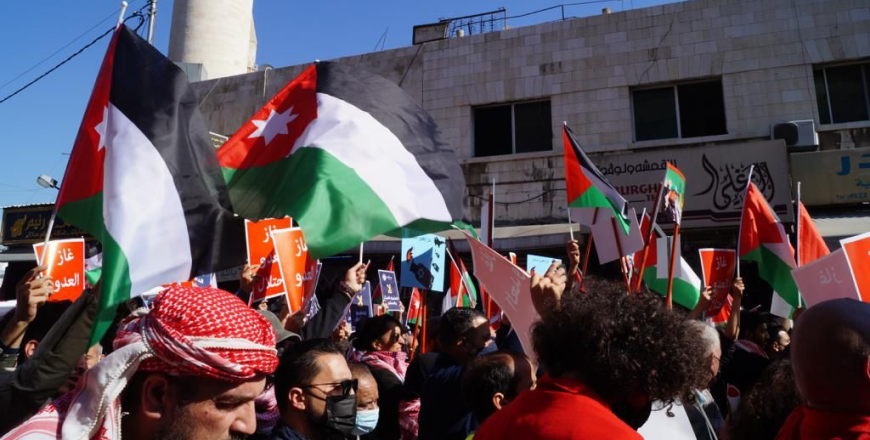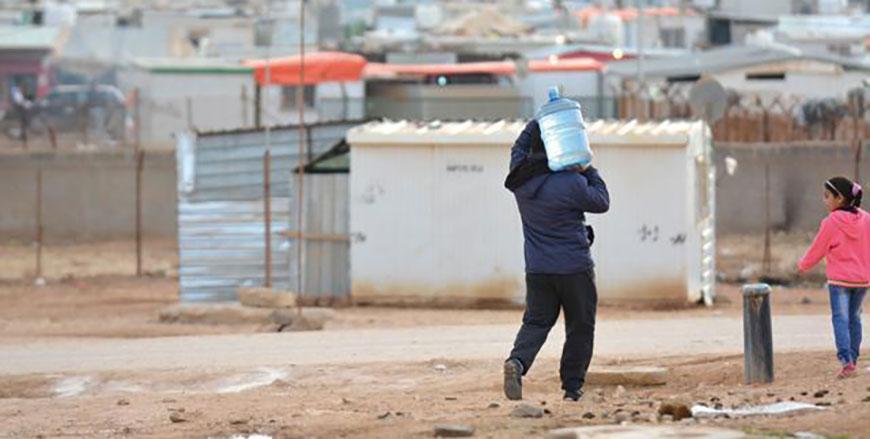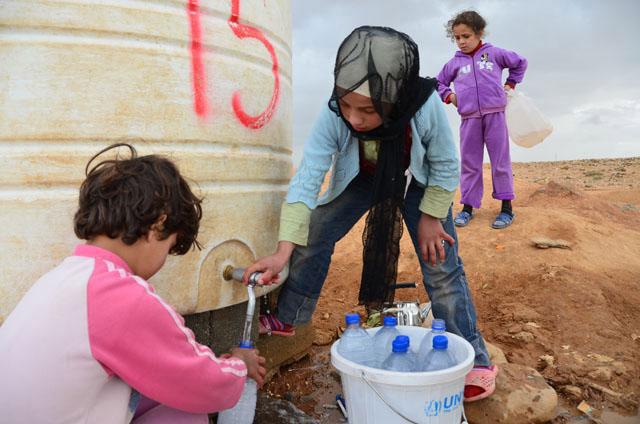You are here
Jordanians protest water-energy deal with Israel
By JT - Nov 27,2021 - Last updated at Nov 27,2021

Jordanians march in downtown Amman in protest against the signing of a declaration document of intent by Jordan, the UAE and Israel on Friday (Photo by Hanna Davis)
AMMAN — Jordanians marched in downtown Amman on Friday in protest against the signing of a declaration document of intent by Jordan, the UAE and Israel.
During the demonstration near Al Husseini Mosque in downtown Amman after Friday prayer, the demonstrators called on the government to revoke the declaration.
The demonstrators, who held banners with slogans rejecting normalisation and going ahead with the deal, also called for severing the 1994 Wadi Araba peace treaty.
Stressing on their rejection to deal with the "Zionist entity", the protestors called on the Jordanian government to focus on alternative local solutions and sources for water supply other than increasing reliance on Israel.
Last Monday, Jordan, the UAE and Israel signed a declaration of intent to negotiate the feasibility of a joint energy and water project.
The declaration of intent aims to conduct a feasibility study in 2022 for the joint project under which Jordan could get 200 million cubic metres of water a year.
A solar plant is to be built under the project and electricity will be provided to Israel.
Jordan receives 35 million cubic metres of water annually in accordance with the peace treaty, in addition to the 10 million cubic metres outside the treaty that was agreed upon in 2010.
For other sources, Jordan depends on the collection of rainwater and groundwater. The water share per capita in Jordan is 80 cubic metres, compared with a global average of 500 cubic metres per capita.
Omar Shoshan, chairman of the Jordanian Environmental Union, noted that there will be no direct benefit from the project for the environmental sector, especially in terms of climate change in Jordan, as it will not help mitigate or improve the impact of the noticeable climate change in the Kingdom.
Shoshan also highlighted the importance of the National Water Carrier Project, which he described as “sustainable and important”, as it works greatly with the adaptation to the scarcity of water resources and climate change in the Kingdom.
“It would have been best to rely on local sources to confront the problem of climate change and its impact on the water sector by cooperating with international partners to carry out the National Water Carrier Project without delay,” he added.
Following the announcement of the deal, several Jordanians voiced their rejection of the declaration.
Mohammad Alawad, a Twitter user, tweeted in Arabic saying that the National Water Carrier Project must be implemented, as it is “the largest water project in the Kingdom and would make great profits”.
He said the priority should be focusing on alternative local resources.
Twitter user Sondos tweeted in Arabic voicing her anger over the signed deal: “This agreement makes the future of Jordan's water security dependent on the Israeli occupation and we as Jordanians completely reject all kinds of normalisation with Israel.”
Related Articles
AMMAN — Jordan, the UAE and Israel on Monday signed a declaration of intent to negotiate the feasibility of a joint energy and water project
AMMAN — The drinking water deficit in the Kingdom is projected to hit 60 million cubic metres in 2022, Minister of Water and Irrigation Moha
AMMAN — State Minister for Media Affairs Faisal Shboul on Sunday said that the declaration of intent, “energy for water”, will be under cons
















